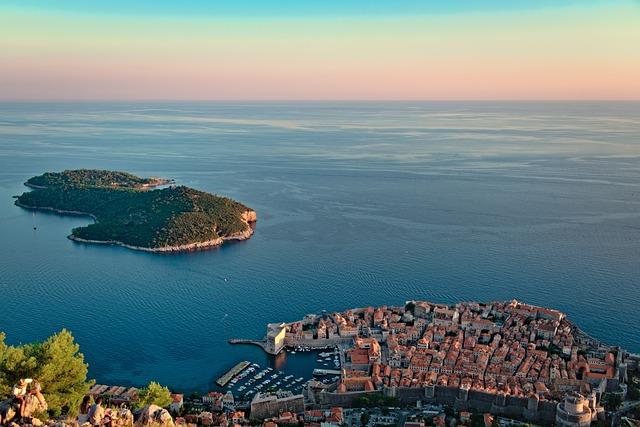In the age of global travel, the allure of Europe’s rich tapestry of cultures, histories, and landscapes beckons millions of wanderers each year. From the romantic canals of Venice to the rugged cliffs of the Scottish Highlands, the continent offers a myriad of experiences that captivate the imagination. Yet, beneath the surface of picturesque towns and bustling metropolises, a complex web of political and social issues often stirs debate. As travelers, we find ourselves at a crossroads: should our journeys be guided solely by the promise of adventure, or do we bear a responsibility to consider the ethical implications of our destinations? This article delves into the intricate question of whether it is ethical to visit European countries with controversial policies, exploring the intersection of tourism, morality, and the impact of our choices on a global stage.
Navigating Ethical Travel in Politically Charged Destinations
Traveling to countries with controversial policies can be a complex decision for the ethically-minded traveler. While some argue that visiting these destinations may inadvertently support regimes with questionable practices, others believe that travel can foster understanding and promote positive change. When considering a trip to a politically charged European country, it’s essential to weigh several factors to make an informed choice.
- Research Thoroughly: Understand the specific policies and political climate of the destination. Consider the potential impact of your visit on local communities and whether your presence might be perceived as support for the current regime.
- Engage with Locals: Aim to support local businesses and engage in conversations with residents to gain diverse perspectives. This can help you form a more nuanced understanding of the situation beyond the headlines.
- Consider Alternatives: Reflect on whether your travel goals can be achieved through alternative destinations or methods, such as virtual experiences or supporting human rights organizations focused on the region.
Ultimately, the decision to visit a country with controversial policies is personal and should be guided by a balance of ethical considerations, personal values, and the potential for positive impact.
Understanding the Impact of Your Tourism Footprint
As a traveler, it’s essential to be mindful of the footprint you leave behind. When visiting European countries with controversial policies, it’s crucial to consider how your presence might impact local communities and economies. Your tourism choices can inadvertently support or challenge the status quo, so understanding the implications is key.
- Economic Influence: Tourism can be a significant source of revenue for these nations. Your spending can either empower local businesses or, conversely, sustain enterprises aligned with policies you may not support.
- Cultural Exchange: Engaging with locals can foster understanding and dialogue, potentially challenging prevailing narratives and contributing to social change.
- Environmental Considerations: Be aware of the environmental policies in place. Your visit should aim to minimize ecological harm, promoting sustainable practices.
Ultimately, being an ethical traveler means considering these factors and deciding whether your visit aligns with your values. Your journey should aim to be a force for positive change, respecting the complexities of each destination.

Balancing Curiosity with Conscience in European Travels
When planning a trip to Europe, travelers often find themselves torn between the allure of exploration and the ethical implications of visiting countries with controversial policies. Navigating this moral landscape requires a delicate balance of curiosity and conscience. Is it right to contribute to the economy of a nation whose policies you fundamentally disagree with? This is a question many conscientious travelers grapple with. Here are some considerations to help strike a balance:
- Research and Awareness: Equip yourself with a thorough understanding of the political climate and human rights records of the countries you plan to visit. Knowledge is your compass.
- Support Local Communities: Opt for locally-owned businesses, accommodations, and tours. Your spending can empower individuals rather than state mechanisms.
- Engage in Responsible Tourism: Participate in cultural exchanges and activities that foster mutual understanding and respect.
- Advocacy and Dialogue: Use your platform to raise awareness and engage in conversations about the issues at hand, promoting a broader understanding and potential change.
By consciously navigating these choices, travelers can make informed decisions that align with their values while still satisfying their wanderlust. It’s about finding harmony between the desire to explore and the responsibility to act ethically.

Practical Tips for Responsible and Informed Voyages
Embarking on a journey to destinations with controversial policies demands a conscientious approach. Here are some practical tips to ensure your travels are both responsible and informed:
- Research Thoroughly: Gain a comprehensive understanding of the political climate and the specific policies that are in question. Utilize reliable sources and be open to diverse perspectives.
- Support Ethical Businesses: Choose accommodations, tours, and restaurants that prioritize ethical practices and contribute positively to the local economy.
- Engage Respectfully: When discussing sensitive topics with locals, approach conversations with an open mind and respect differing viewpoints.
- Minimize Your Impact: Be conscious of your environmental footprint by opting for sustainable travel options and minimizing waste.
By incorporating these strategies, travelers can ensure that their voyages align with personal values while still exploring the diverse cultures and histories that Europe has to offer.
Closing Remarks
As we navigate the intricate tapestry of travel and ethics, the question of whether to visit European countries with controversial policies remains a personal journey. Each traveler must weigh their values, intentions, and the potential impact of their presence. The decision is as complex as the cultures and histories of the lands we explore. Ultimately, it invites us to reflect on the role of travel in our lives: a bridge across divides, a mirror to our principles, and a canvas for understanding. As we close this chapter, may your compass be guided by informed choices and a spirit of curiosity, ever mindful of the footprints you leave behind in the world.


































